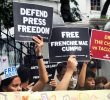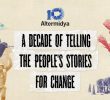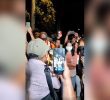* Statement of the International Indigenous People’s Movement for Self Determination and Liberation
Would the current approach of the Duterte adminstration on the drug problem bring the desired aim of controlling the spread of addiction? With more than six thousand deaths, a million and a half person that voluntarily surrendered, more five million house visits, thousands of arrest and huge volume of shabu confiscation is it safe to say that its headed for something?
The failure of Colombian and American war on drugs should be taken seriously. Since the ascendancy of Richard Nixon as President of USA the war on drugs took a dramatic turn similar to the Colombian efforts. Both government spent billions of dollars on making record arrests and detention, raids, assassinations and even punishing big names. Last year US the Special Forces were involved in capturing El Chapo in Mexico; while the Colombian government has Pablo Escobar to its credit. And yet the problem not just persisted but got worse. In both countries there is a continuing trend of substance abuse and incarcerations.
Far from convincing, our current statistics should be viewed more as distress signals to a worsening catastrophe rather than treated as positive indicators.
The same with the old ways of facing the menace, Oplan Tokhang and Double Barrel doesn’t live up to its expectation of getting the big shot, those behind the shadow of power and don’t offer a credible challenge to the whole narco-politiical body. There is a list of influential and powerful individual from the public and business sphere, including foreign nationals that are identified as being involved in drugs, but up to now we have yet to see the full extent to which the government would go to bring them to justice.
It is established fact that illegal drug trade would not prosper without the nods of the bosses in
authority and their cooperation. From just over a million addicts in the early 2000s the number soared to 5 million in just fifteen years. Hundreds of thousands are into peddling, security and other logistical support for drug trade. And a multi-billion business comparable to the biggest investments in the country. It is a grand private-public partnership scheme with plain criminal intent almost in the same level as its legal counterpart.
Only when a Korean that was murdered on Camp Crame grounds did the administration made an insincere suspension and started investigating those implicated in the case and identified internal loopholes. Another four hundred police were presented as rouge cops after the incident. Although most of them faced minor administrative charges and redeployed to Basilan. Criminals in uniform could thrive more in terror affected areas.
Internal cleansing of the whole bureaucracy and the armed forces should have been the first order before launching a very delicate and massive campaign. But so little is being done to address the rampant corruption within the government and the collusion of not a few officials with syndicates.
And this deepseated reluctance is one of key factor why all the fast efforts failed to really address the drug problem.
Does this mean that the administration is just prioritizing first the lower class before he goes up guns loaded the social ladder? And why did they planned it and executed that way?
Its this defective strategy and poor implementation that should concern us all. The modus operandi is to take down as many cheap druggies – the victims that needed to be saved they were once called – in the hope that there insignificance would not cause a fuss. Until it comes to a time, determined by public perception and government evaluation, that It would be announced the Philippines is drug free and we all get the happy ending that we are promised of.
The shroud of secrecy that envelopes the process of determining a target should break everyone’s silence. If one is really involved in drugs doesn’t the person deserve due process and presented to a proper court like the case of Sen.Leila De Lima, the self-proclaimed political prisoner who gets all the media attention absent to her real counterparts. That’s just total denial of many fundamental human rights and subversion of the judicial process.
The rampant killings is appalling and a cause of grave concern especially for the welfare of the
marginalized, of Indigenous Peoples because it brings into mind the policies of the past-regimes of eliminating opposition beyond legal parameters. As Indigenous Peoples are very vulnerable to state forces attacks and vilification it is no surprise that the drug war could be used by the ruling elite as a pretext for more abuse and violence like the case of the four Bulacan farmers being implicated with drug trading last December 2016.
Most of the victims in the US are disenfranchised, poor black Americans and Spanish migrants and descendants mostly living in the ghettos while in Colombia they were mostly urban poor and peasant migrants coming from the remote villages. A chilling demonstration of marginalization and discrimination.
And the Philippine experience is no different. A simple review of the news and victims’ profiles will easily show the lethal correlation. To be poor, uneducated and jobless are red flags for the authority and that add to the growing insecurity most of the people feel.
But being poor is not a threat itself. Majority of the lower class strive hard to earn a decent living. What is seriously lacking is the opportunity to encompass all the jobless and underprivileged. And with the failure of the current economic system and the urgency to survive a small number of our countrymen turn to criminal jobs.
In the end, the process of drug proliferation will not stop since the root causes are never sufficiently addressed: the continuous internal power struggle within the government institution, the rehabilitation of patient-victims, the educational and cultural requirements, the trial and punishment of drug elites and the basic socio-economic aspects of the whole process.
”Should we wait more?” is a very limited Machiavellian question:” What are the factors for success” is a more critical alternative.





![[ANALYSIS] A different drug war](https://davaotoday.com/wp-content/uploads/2024/09/1000019103-110x100.png)




